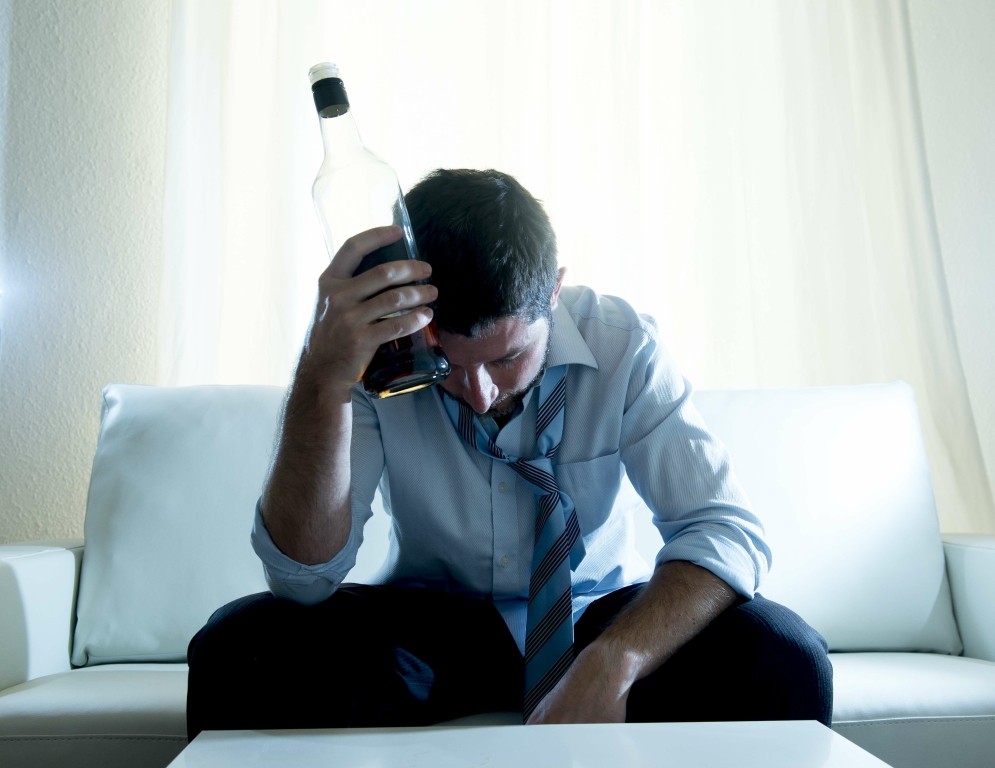Aside from existing anger issues, people can turn into aggressors when drinking for several reasons. Becoming angry or irritable when you drink is a relatively common experience — an often-cited body of research by the World Health Organization notes that aggression has a closer link to alcohol than any other kind of psychoactive drug. Another study that explored the impact of alcohol consumption on facial recognition found that individuals with alcohol use disorder exhibited a bias toward misidentifying emotional facial expressions as hostile or disgusted (Freeman et al., 2018). Interestingly, those in the control group tended to misidentify expressions as happy. Consuming alcohol can serve as a distraction from a range of negative feelings, including anger. And all too often, as in Ryan’s case, it reflects displacement, directing anger toward a target that is not the source of an individual’s original anger.

This article focuses on one particular aspect of this complex set of systems, namely the relationship between SES—including income/economic factors, educational level, employment status, and housing status—and alcohol-related outcomes. It synthesizes data primarily obtained from English-language systematic reviews and meta-analyses that were based on studies conducted in the past decade involving adult populations (for a summary of these reviews and meta-analyses, see table 1). In some cases, these analyses were limited to studies from only one country, whereas other analyses were cross-national. In any case, caution must be used when interpreting these findings, because the cultural and political contexts in which these phenomena occur can differ widely. In addition, this article reviews some larger, population-based studies (see table 2), particularly those that were not addressed within the included reviews and which directly assess the association between SES and alcohol consumption and related outcomes.
What To Do About the Link Between Anger and Alcoholism
These are the issues that we jump into in this deep dive into the link between anger and alcoholism. The good news is, you can find help for both your anger and your alcoholism. “Gathering your power before you respond to anger takes awareness and restraint. Admittedly, it’s hard to surrender the need to be right in favor of love and compromise. But, little by little, surrendering these reflexive instincts is a more compassionate, evolved way to get your needs met and keep relationships viable if and when it’s possible.” ~Dr.

Suppressed anger was confirmed to be a significant predictor of impulsive suicide attempt. High level of angry temperament was predictors of aggression (Haw et al., 2001). Low trait anger (T-Anger) individuals are less likely to experience anger and, presumably not become aggressive (Parrott and Giancola, 2004). Higher T-Anger scores, higher degree of hopelessness and lower self-esteem took the role in repetition of deliberate self-harm in adolescents (Hawton et al., 1999). The journal Experimental and Clinical Psychopharmacology reports on studies showing that alcohol can increase aggression in both men and women, but more so in men.
The Truth Behind Alcohol and Anger
Therefore, results are not generalizable to comorbid and/or other psychiatric disorders. Finally, the study group was restricted to a treatment population, and therefore it is not possible to generalize the findings to non-treatment groups. If a person develops an alcohol dependence while struggling with anxiety, their anxiety symptoms can worsen over time. They might start drinking even more to calm their anxious feelings, which can seriously affect their physical, mental and emotional health. By reducing the amount of alcohol you consume or stopping drinking altogether, you can improve many of the symptoms of depression.
- Reach out to the best Mental Health Counsellor in Delhi at SimranShri Rehabilitation Centre.
- It can be used to avoid other issues, emotions and experiences – like the abuse of alcohol.
- It has also been reported that both the males and females are equally aggressive when verbal aggression is at play (Archer, 2004; Björkqvist, 2017).
- The link between alcohol and anger has to do with alcohol’s ability to remove your inhibitions and disrupt your emotional regulation.
- Therefore, people who rely on drinking as a coping mechanism can be more inclined to make rash choices, such as having unprotected sex or getting into a car with a stranger.
Unlike impulse-driven aggression, which is reflective of an agitated state of mind, premeditated aggression is a planned aggressive act (Martin et al., 2019). A current review indicates that the cognitive processes often affected in acute alcohol intoxication and chronic alcohol consumption that may contribute to alcohol-induced aggression can be improved by computer-aided cognitive training (e31). For example, difficulties processing information, verbal or non-verbal memory, attention, and problem-solving abilities are enhanced. In alcohol-dependent individuals it has successfully been shown that cognitive training can support rehabilitation as part of traditional treatment (e.g. 17–19). It should be noted that the target variables of these randomized, controlled clinical trials were treatment outcomes such as remaining abstinent, rather than aggressive behavior or aggression. Training of cognitive functions seems also to improve patients’ ability to take in and process information from empirically validated therapies more quickly and with more lasting effect.
Is Treatment An Option?
People who drink alcohol to cope with their mental health conditions have a greater chance of developing an alcohol use disorder (AUD). Drinking may also be a method to self-medicate negative emotions, including anger. Alcohol is a depressant alcohol depression and anger substance, meaning that it helps to suppress some of the “fight-or-flight” stress reactions that anger can induce. Repeated alcohol abuse as a coping mechanism increases the odds for developing problems related to alcohol, however.
- The practical reasons for conducting this study are to assess whether it is relevant to include this feeling in therapeutic practices with users of psychoactive substances and determine which symptoms correlate with anger.
- ● Anger is one of the major problems that trigger abuse and mental trauma; it drains the energy and patience level gets drained, and loss of confidence.
- If you’re dealing with an AUD and depression simultaneously, you should seek professional treatment for both of these conditions.
- If a person develops an alcohol dependence while struggling with anxiety, their anxiety symptoms can worsen over time.
- Several sociodemographic characteristics, such as gender, age, and race/ethnicity, moderated these associations.
- Through various treatment options, we can help you get back to a life of normalcy.
When they come out, others notice them because they’re not a part of the everyday social experience. Professionals may also recommend writing therapy, talk therapy, music therapy, and other ways to help people express themselves and their emotions. There are plenty of ways to express anger more healthily, and professionals help people find the solutions that suit their preferences and abilities. 1The terms “heavy episodic drinking” and “binge drinking” have sometimes been used synonymously. The latter, however, has fallen out of favor with some alcohol researchers and treatment professionals because it can be confused with a longer-term and more extreme alcohol-use period than is typically referred to as a heavy drinking episode. Finally, the model 4 is built to express the relationship between the response, AEX-Con and the predictors trait anxiety.
Addressing the Connection Between Anger and Alcoholism at the Same Time
In contrast to the findings for alcohol use, cross-sectional analyses have indicated that SES is inversely related to negative alcohol-related consequences, including alcohol-related mortality. In other words, although people with lower SES may be less likely to drink and may be consuming less alcohol overall, they are more negatively affected by its effects. Findings to date suggest that economic disparities and their secondary effects are moderating the relationship between alcohol use and the experience of negative alcohol-related consequences; however, the exact nature of these complex relationships requires further exploration. Certain mental health conditions, such as depression, increase the chances of self-harm and suicidal ideation. Drinking is known to magnify the symptoms of these conditions, making these urges stronger.
- After doing this for a while, you can begin to resist the urge to drink when you get home at night to slowly build the habit of not drinking.
- If those methods don’t work, or if you feel that you need to take things one step further to deal with your anger and alcohol issues, addiction treatment is another great option aside from anger management.
- These situations likely spark emotions when you think about them — perhaps you feel embarrassed or ashamed.
- To date there are no studies that directly investigate whether alcohol-induced aggressive behavior can be reduced through training in cognitive functions.
- Unlike impulse-driven aggression, which is reflective of an agitated state of mind, premeditated aggression is a planned aggressive act (Martin et al., 2019).
- Depending on the frequency of your use, you may need to discuss alcohol tapering strategies with your doctor.
- Because he is a member of a support group that stresses the importance of anonymity at the public level, he does not use his photograph or his real name on this website.